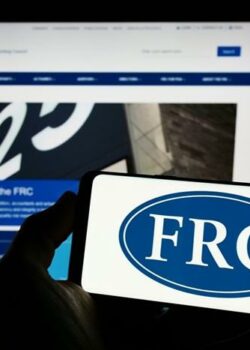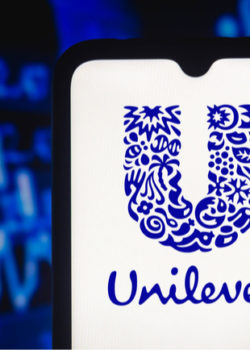It is a cold December morning in Paris. A group of concerned investors is gathered in a conference room with a beautiful view. We are all there to discuss environmental, social and governance matters (ESG).
I am seated behind a lady who is the face of ESG for a large investment firm. The first thing I notice is that she is surrounded by a cloud of perfume that smells like a brand notorious for animal testing. Draped around her chair is a stylish and expensive-looking coat, which is lined with real fur.
As I am trying to wrap my head around this, she reaches for a handbag which carries the label of a company known for unfair labour conditions. That led me to wonder the following: If we criticise corporations for producing these products under those circumstances but still purchase from them, what is it exactly that motivates them to change for the better?
Although corporations have been criticised endlessly in the uproar surrounding ESG, their side of the story is often overlooked in the academic literature. This led me to interview 20 large corporations in the Netherlands, the UK and Germany to better understand what drives them to embark on their ESG journey.
Reputations
Certainly, today’s global and interconnected world has increased its expectations of corporations; they need to not only be profitable, but also socially and environmentally responsible. Not meeting these expectations can result in damage to their reputation, a bad ESG score, or even litigation costs which may affect their bottom line directly.
So, why are there still so many scandals?
One can argue that without the demand for harmful products or without the pressure to “make a quick buck”, this would be happening a lot less. Unfortunately, many socially and environmentally coloured issues are often merely perceived as a “nice to have’’. In other words, they are not core to the business or culture and, therefore, easy to discard.
This is also reflected by the way extra-financial information is presented in sustainability reports; it often lacks a connection to the strategy and business model of the organisation.
At the other end of the spectrum, there are corporations that have stepped up as leaders and have made environmental and social issues an integral part of their business model. The question I wanted answered is whether it is external pressure or criticism that drives corporations to integrate ESG? Or, perhaps, the driver is engagement or active ownership from shareholders?
It could also very well be that it all comes down to committed senior executives. What became clear during the interviews is that, although they believed in the business case of ESG, most embarked on their ESG journey because they reacted to their external environment. ESG disasters, especially, and the subsequent criticism seem to have served as a wake-up call for many.
Although there is nothing wrong with learning from mistakes, this reactive stance means that something must go wrong first. This “something’’ could be fraud, but it could also mean irreversible environmental damage or human lives.
This reactive stance from corporations towards ESG is understandable, in the sense that they do not want to be too far ahead of consumer demand. After all, there needs to be a market for their products. The companies I spoke to referred to this as “finding the sweet spot’’ and they emphasised how difficult it is to find a balance.
Consumer power
The reason for embarking on the ESG journey for most corporations is simple—consumer demand. In other words, we, as the customer, can play a significant role in driving ESG adoption.
I find this interesting, because even though we often blame the “big bad corporation’’, we tend to avoid scrutinising our own purchasing behaviour. Clearly, the demand for more responsible products or brands can drive corporations to do better. To make that happen, we should think twice about whether we agree with the values of the brands that we buy.
Do we want the people who made our stylish new jacket to be fairly compensated? Buying it means that you endorse whatever the corporation did to produce that jacket. Instead of just sharing the newest scandal on social media, we can take a stance with our purchasing power.
Of course, we need to trust that corporations are transparent about their production processes, so that we can make an informed purchasing decision. This is not that easy, as you really have to do some research.
Perhaps, if the social and environmental impact of products was more clearly communicated on the labels, we would be more inclined to either buy them or steer clear of them. For this to happen we need a way of measuring impact and we need that data audited. It is hard for the consumer to distinguish between the corporations who are trying to make a difference and those that are good at “greenwashing”.
Similar to the difficulty consumers have in distinguishing the good from the not so good, the same gap is found on the other end of the investment chain.
After having spoken to many asset owners and managers, it became clear that there is a considerable gap between the data that is needed and the data that is disclosed. Moreover, they struggle with the incomparability of data and standalone reporting. These shortcomings are exactly why the ESG rating and ranking industry has become so popular.
Fortunately, the companies in my sample acknowledged this issue and stated that significant improvement is necessary in the way they communicate the business case of ESG.
The idea that corporations should better communicate the value-add of ESG, and how it is connected to strategy, is in line with the efforts of the International Integrated Reporting Council (IIRC). Unfortunately, this practice is still in its infancy and many companies are unsure of how to set it up.
If they do clearly communicate how they benefit from ESG in the future, it will remove several other obstacles that I found in the investment chain. For example, the obstacle at the asset-owner level where there is a lack of belief in the business case. Or, on the investor level, how to differentiate between outperformers and underperformers in the context of ESG.
Lastly, the ESG rating and ranking industry may become less crowded if companies report the information in a way that allows investors to more easily understand the materiality of ESG.
So, coming back to the question I asked myself on that cold December morning in Paris: what motivates a company to change for the better?
From the interview analysis it appears that if a company does not have internal catalysts (i.e. top management committed to the cause or influential change agents), the external environment can sometimes shock them into fundamental change.
Other times, the external shock (i.e. a revealing report by an NGO) is just not enough to truly change the company for the better. Instead, it often just appears as if the company has made changes, since ESG tends to be a peripheral issue to many.
So, I say we show them that we are not all talk. Let’s put our collective purchasing power to work and show the “big bad corporations’’ that we are here to help them work towards achieving the Sustainable Development Goals.
It’s a big job, but many hands make light work.
Stephanie Mooij is a researcher at the Smith School of Enterprise and the Environment, University of Oxford.





